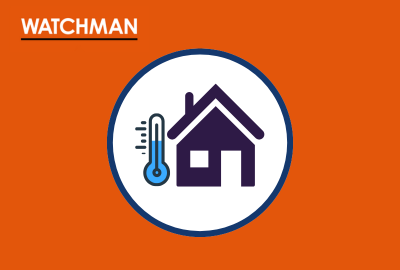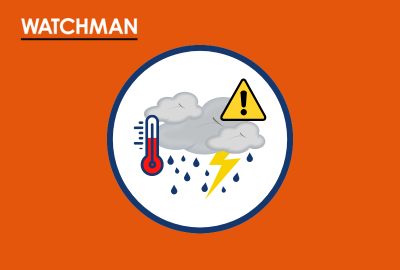It may, for example, be challenging to find a buyer if the market is slow; or the sale can be held up where a complicated chain is involved.
This means there is always a danger that empty residential properties can be neglected where delays, and the busyness of daily life distracts trustees and personal representatives from protecting an empty property. The potential risks to unoccupied properties are wide-ranging, such as flooding and electrical faults; arson and squatters; severe weather events and burglary.
The financial loss that can result from a property affected by any of these risks can be significant; and the value of the property may drop as a direct result.
There is, therefore, a critical need to ensure the property is sufficiently protected. Probate practitioners are reminded of Watchman’s unoccupied property insurance product which is designed specifically to cover the risks associated with empty probate properties.
Empty and exposed
Every year, campaign group Action on Empty Homes analyses the latest official data on long-term empty homes. A residential property is considered empty ‘long term’ if it is unfurnished and unlived in for 6+ months and liable for council tax. Based on the latest government data published by the Department for Levelling Up, Housing & Communities (DLUHC) in November 2024, the group found there are more than a million empty homes in England alone.
However, probate properties (and residential homes where the owner is in care) are exempt from being considered a long-term empty home. There were more than 200,000 exempt probate properties as at October 2023 but it is difficult to be accurate about just how many there are in total across the UK (recent reports suggest as many as 1 in 10 homes on the market is a probate sale).
Continued delays at the probate registry mean personal representatives can, if there are any issues, still wait months for the grant. However, the government said in early spring, that waiting times have now reduced to around a month (and in the case of paper applications, to less than 15 weeks from more than 22 weeks). Once the grant is received, an eventual sale could take weeks or months.
With the potential for delays, executors and administrators must be advised of the need to ensure adequate and effective insurance cover is in place. Should a loss arise as a result of failing to protect the property, the PRs may be personally liable for losses if they were negligent.
Simple and effective
Watchman cover is simple to arrange, convenient and highly cost-effective. Importantly, unlike other policies, the policy usually covers risks including malicious damage and subsidence. There is a requirement that the property is checked every 30 days, a much less onerous requirement than other policies that expect a check every 7 days.
Many other unoccupied residential property insurance policies also demand payment of an upfront premium, potentially exacerbating existing cashflow issues. There is no such requirement with the Watchman policy – only a small initial deposit is required for cover to be in place, which executors often find a significant help if little cash is readily available in the estate.
Cover is calculated at a fixed daily rate; and the full insurance premium is then paid on completion of the sale or (if earlier) within 12 months. Also, there are no hidden charges or cancellation fees.
With most insurance policies PRs will still need to check the property regularly and take appropriate steps, such as disconnecting water and gas, removing valuable items from view and sealing letter boxes but Watchman insurance is more flexible by offering a choice of cover based on the actual protections it is realistic to implement.
For more information and a quote, contact us here. Watchman cover can be arranged on the same day by telephone with a friendly and knowledgeable team.







